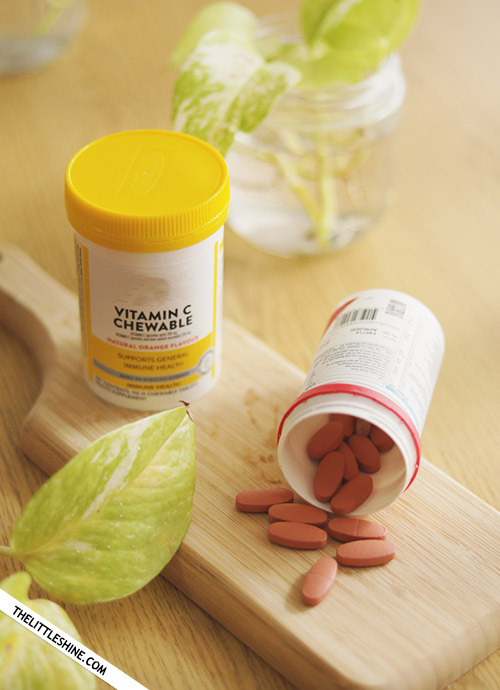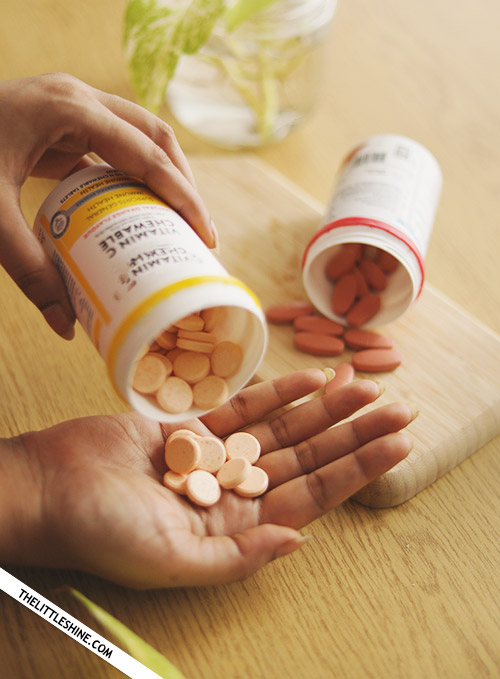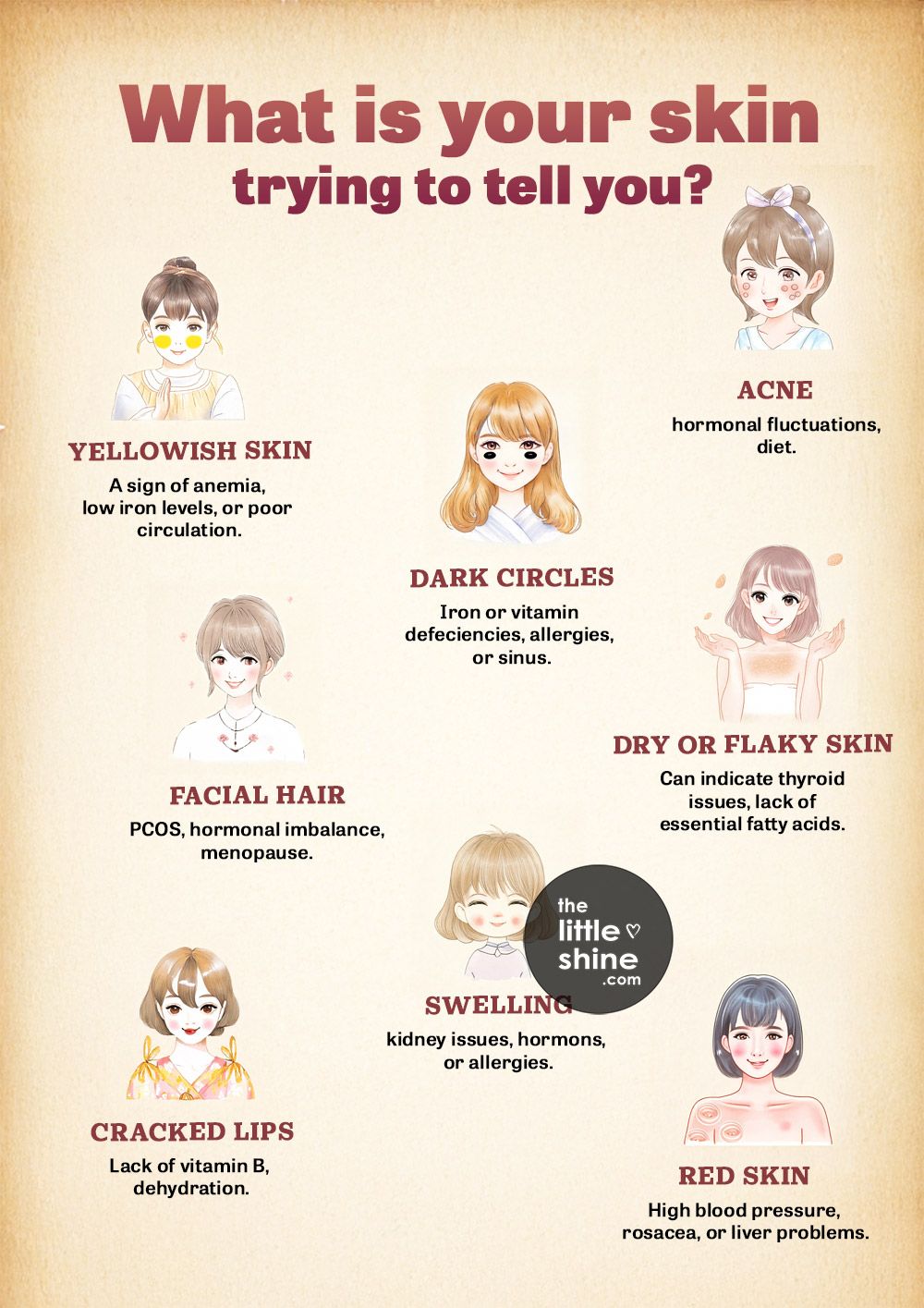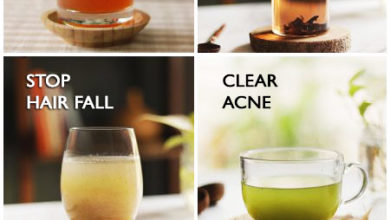6 BEST VITAMINS FOR CLEAR GLOWING SKIN
We all have heard the word “vitamins” in our Science classes, growing up. Those organic compounds which can be produced by the body, when the right type of food is consumed. Each person has a different requirement of vitamins and sometimes the body doesn’t produce enough of it due to various reasons. They need to be replaced by vitamin or multivitamin supplements, which need to be consumed in moderate and appropriate doses.

A common question may arise – which vitamin is the most essential for a human body? Well, the fact is that, every vitamin plays an essential role in the body. These are currently the recognized vitamins: vitamin A, vitamin D, vitamin E and vitamin K are fat-soluble vitamins. They are stored in the fatty tissue and liver for a longer time. Vitamin C and vitamin B (B1, B2, B3, B5, B6, B7, B9, B12) are water-soluble vitamins, cannot be stored for a long time as they are excreted by the body in the form of urine.
Here are six vitamins essential for clear skin:
1. Vitamin A:
Vitamin A is essential for the support of skin, eye and reproductive health and also aids immune system functioning. There are 2 types of vitamin A – pro-vitamin A (beta-carotene, found in plant based products like fruits and vegetables). While preformed vitamin A (includes the compound retinol and is found in animal based products like meat, fish and dairy). Retinol is helpful for the skin in producing new skin cells and keeps the skin from over-drying. Carotenoids are helpful to the skin as they prevent the skin from cell-damage, premature skin aging and skin diseases.
Retinoid rich foods: Meats (liver), fish, cheese, butter, ghee, eggs, shrimp, dairy products.
Carotenoid rich foods: Carrots, apricots, mangoes, peaches, pumpkin, asparagus, broccoli, spinach, kale, sweet potatoes, cantaloupes.
2. Vitamin C:
Vitamin C is essential for the production of collagen (an essential protein found in the bones, muscles, skin and tendons). Also, Elastin (highly elastic protein which is helpful to allow the tissues in the body to resume their shape after stretching or contracting) in the body. Vitamin C acts as an antioxidant and can help protect the skin cells from ultra-violet damage. It also prevents wrinkles and fine lines, hydrates the skin, promotes wound healing, lowers dark pigmentation of the skin and also reduces inflammation.
Vitamin C rich foods: Citrus fruits like: oranges, lemons, pomelo, blackcurrant, guava, papaya, strawberries, green bell peppers, green chili peppers, kiwi fruit, amla (Indian Gooseberry), and tomatoes
3. Vitamin B:
As mentioned in the introduction, vitamin B is a group of vitamins consisting of 8 different types. The two most important types of vitamin B for the skin are Vitamin B3, niacin or niacinamide, commonly used in skincare. They can help reduce dryness and soothe skin related conditions and keep the skin moisturized at all times. It can also be helpful to improve the appearance of your skin and skin tone. Vitamin B5, pantothenic acid can help to keep the skin hydrated and reduces moisture loss. They benefit people with irritated skin with its anti-inflammatory properties.
Vitamin B rich foods: Avocados, green peas, mushrooms, clams, oysters, peanuts/groundnuts, pulses or legumes, whole grains, milk. READ MORE – 5 best vitamins for faster and thicker hair growth

4. Vitamin D:
Vitamin D is also often called as the ‘sunshine vitamin’ as the body produces vitamin D in response to sun exposure. Vitamin D contains calcitrol, in its active form, which is very helpful for skin protection and keeps the skin healthy. It is produced by the kidneys. It also promotes skin cell growth and repair, keeping the skin from ageing. For those unable to be exposed to enough natural sunlight or are vitamin D deficient. They must consume vitamin D supplements, if one cannot get enough even through their diet.
Vitamin D rich foods: Oily fish like salmon, sardines and mackerel, red meats, liver, egg yolks, milk with fortified cereals, cheese, oatmeal, tofu.
5. Vitamin K:
Vitamin K is essential in aiding the body’s process of blood clotting and promotes quick healing of wounds etc. It also helps skin conditions like stretch marks, scars, spider veins, dark spots and dark circles. It also has antioxidant properties which can detoxify the skin affected by pollution.
Vitamin K rich foods: Brussels sprouts, mustard greens, parsley, romaine, fish, liver, meat, eggs, cereals.
6. Vitamin E:
Vitamin E has antioxidant properties just like vitamin C and can protect the skin against sun damage. They help to maintain its appearance and skin health. It can also help treat conditions like acne, psoriasis, ageing effects and sun damaged skin.
Vitamin E rich foods: Nuts, seeds (like sunflower seeds, pumpkinseeds etc), dry fruits, spinach, olive oil, shrimp, kiwi fruit, avocados, butternut squash. READ MORE – ALOE TURMERIC – clear, glowing and healthy skin

